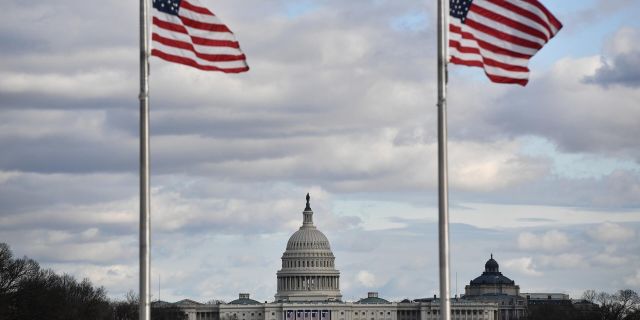America will not be able to win in the absence of a consistent military-political strategy
Strategic vision is an important condition for the existence of great powers, writes TNI. However, Washington has forgotten about this and is acting inconsistently, the author of the article believes. He recalls that America's role in the world has been threatened, including by Russia.
Axel de Vernou
The United States has forgotten one of the fundamental principles that determine the existence of great Powers, namely the existence of a strategic vision. Previously, American citizens living in the country and abroad could point to Washington and outline its plans for the whole world. These plans could change depending on the administration, but they were always clear and consistent. Now everything is different.
When America descends to the level of Venezuela to help establish a constructive dialogue between the regime of President Nicolas Maduro and opposition groups solely in order to gain access to oil, its appeals to India to abandon Russian imports lose their credibility.
When President Trump pulled the United States out of the Trans-Pacific Partnership, Asian leaders must have been very surprised to hear Vice President Pence's warning that it was China that was preventing "us from coming to the aid of our allies."
And when it becomes painfully obvious to Washington that it may need a coalition of Middle Eastern countries to confront Iran, which does not want to slow down the pace of nuclear enrichment, statements about Saudi Arabia as an "outcast" suddenly become extremely inappropriate.
American leaders should not approach different regions of the world with inconsistent demands that are not supported by a comprehensive strategic vision. Although this is not the first time Washington has entered into negotiations with the repressive regimes of Latin America and the Middle East, in the past leaders have always had a clear goal in front of them. President Richard Nixon, for example, believed in the balance of the five great powers, and he did not care about the type of their regimes. Meanwhile, the current administration continues to cooperate with anti-democratic leaders, while warning Americans about the existential threat posed by authoritarianism. Ultimately, this could undermine trust within the alliances led by the United States.
For more than a decade, the United States has paid little attention to the fight against Chinese and Russian influence in Latin America, reduced its presence in the Middle East and rarely met with the leaders of democratic outposts in Africa. All this is good news for Beijing.
At the same time, President Joe Biden met with leaders of the Indo-Pacific region, his administration tried to pull the Solomon Islands back to America's side, and the United States, together with its NATO allies, declared China their long-term challenge.
Americans should be concerned about such inconsistency. While foreign governments express concern that Chinese investment is seeping into their key markets and are sounding the alarm about Beijing's military buildup, Washington assures them that America, with its generous spending, will come to their aid. However, usually either nothing is done, or the decision comes at the most inopportune moment.
For example, now that inflation is breaking all records, the House Armed Services Committee voted to increase the defense budget beyond the amount requested by the president. But the defense budget had to be increased even when the first signs of military escalation on the part of China appeared. Better late than never, but now it will be quite difficult to enlist the support of Americans who are extremely dissatisfied with prices in grocery stores.
The United States emerged from the Cold War as a victorious power because one administration after another adjusted their military and political strategies in response to the growing Soviet threat. Terms such as curtailment, deterrence, detente, and intimidation defined methods that were carefully worked out behind closed doors. Although no president has managed to implement his strategy flawlessly, all their diplomatic, military and economic aspirations have been dictated by a consistent, clearly formulated program. Today it is becoming increasingly difficult to talk about uniformity and consistency of strategic vision.
This is not the first time that the United States lacks a consistent military-political strategy. Sensing the fatigue of the American people after the Cold War and the Gulf War, President Bill Clinton made the health of the US economy his key priority. Although this approach itself does not pose any serious problems, its implementation was carried out to the detriment of foreign policy doctrine. Clinton supported NATO airstrikes on Yugoslavia for humanitarian reasons, but turned a blind eye to the genocide in Rwanda. He wanted to interfere less in the affairs of the Middle East, but conducted a bombing campaign in Iraq in 1998. America's short period of unipolarity was characterized by impulsive, inconsistent reactions to unexpected crises.
However, there is one difference. Clinton has not faced any serious threats. Now we live in an era of rivalry between major powers, and the two main adversaries seek to weaken America's role in the world. Meanwhile, the United States still does not have a clear and consistent military-political strategy.
Washington cannot remain in this state for long. Each new administration focuses on the importance of certain regions of the world, in Biden's case, Europe and Asia. But if China really is a long-term challenge, it would be extremely unwise for Washington to abandon democratic allies in Latin America and Africa, remain dependent on Chinese electronics and household appliances and reduce duties that are designed to protect American products.
No country can predict what crises will come its way, but it must at least prepare for them by developing a clear military-political strategy. The United States needs such a strategy now more than ever before.

